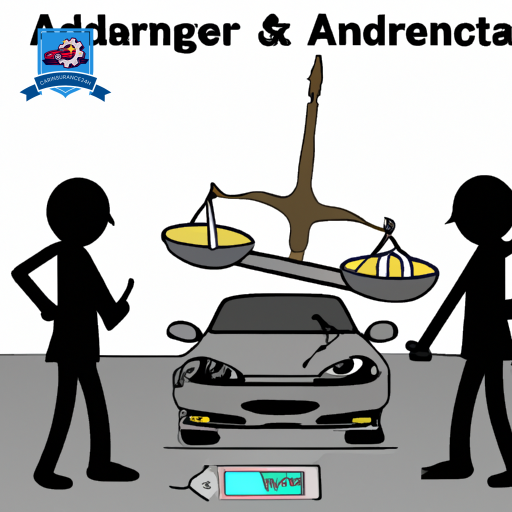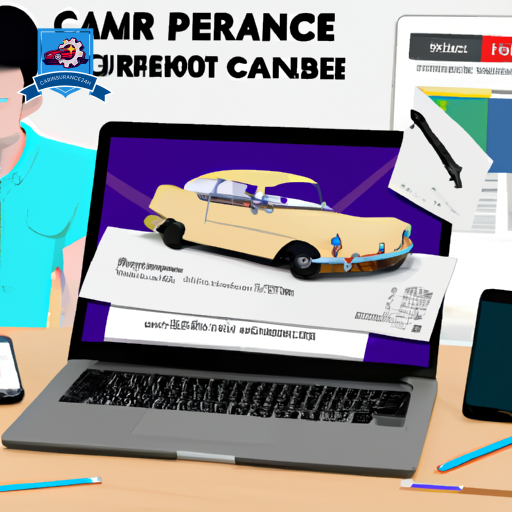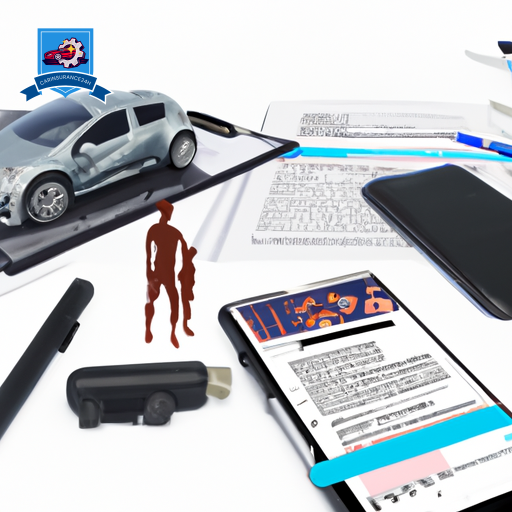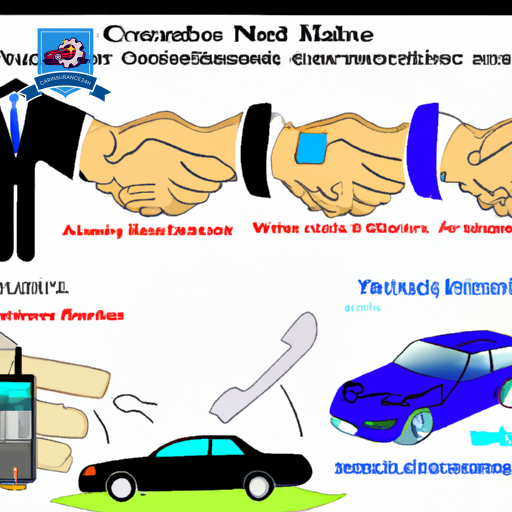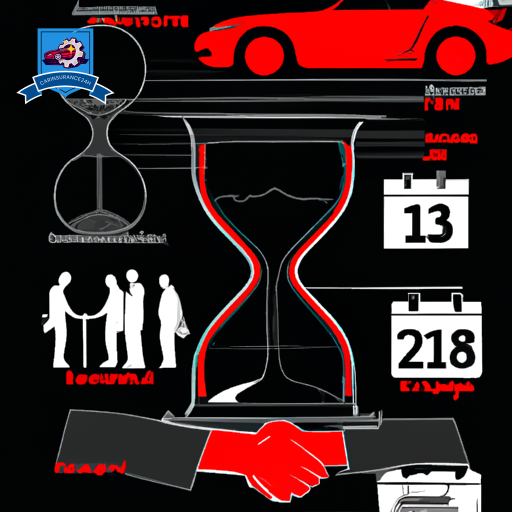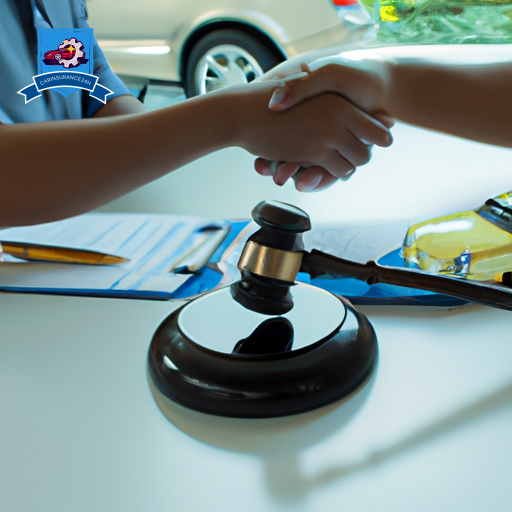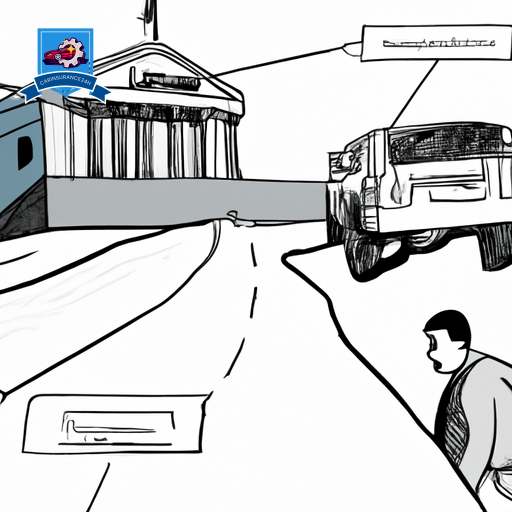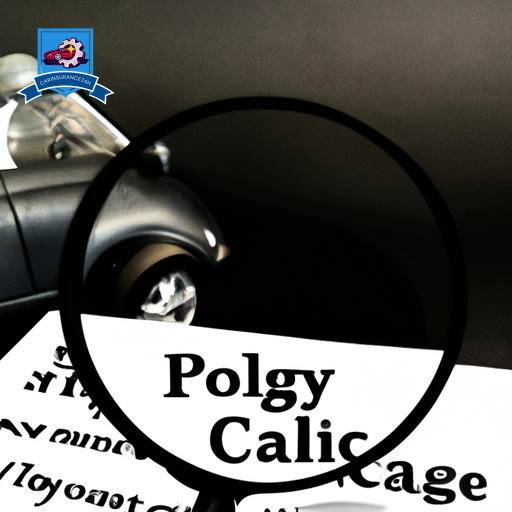When individuals find themselves in disagreement with their car insurance adjuster’s assessment, it is essential that they first thoroughly understand their policy’s coverage and limitations. This foundational knowledge equips policyholders with the necessary context to evaluate the adjuster’s decisions critically.
Subsequently, gathering robust evidence to support one’s claim becomes vital, as does the consideration of seeking a professional second opinion. This strategic approach not only strengthens one’s position but also paves the way for effective communication and negotiation with the insurance company.
As we explore the subsequent steps, including the potential escalation of the dispute, the process demands meticulous attention to detail and perseverance.
Understanding Your Policy

Before engaging in any disagreement with a car insurance adjuster, one must thoroughly understand the specifics outlined in their insurance policy. This foundational knowledge serves as the bedrock for any subsequent discussions or disputes regarding claim settlements. A thorough review of the policy enables the insured to identify and leverage critical details that could influence the adjuster’s evaluation.
Policy exclusions stand as a pivotal aspect of this understanding. These are specific scenarios or conditions under which the insurance coverage does not apply. For instance, most car insurance policies exclude coverage for incidents deemed as intentional damage or those occurring under the influence of alcohol or drugs. Recognizing these exclusions is crucial, as it prevents futile disputes over claims that inherently fall outside the scope of the policy’s coverage.
Similarly, coverage limits delineate the maximum amount the insurance company will pay in the event of a claim. These limits are explicitly stated within the policy documentation and can vary significantly depending on the type of coverage purchased by the policyholder. Understanding these limits is essential, as it sets realistic expectations for the claim’s settlement amount. Engaging in a disagreement without acknowledging the predetermined coverage limits could lead to unwarranted frustration and dissatisfaction.
Gathering Evidence

Gathering evidence plays an important role in substantiating your claim when disputing an adjuster’s assessment. In the event of a disagreement with your car insurance adjuster, it becomes pivotal to methodically collect and present evidence that supports your standpoint. This evidence serves not only as a foundation for your argument but also as a means to assure a fair evaluation of your claim. To streamline this process, understanding the types of evidence that can notably impact your case is essential.
Here are several key forms of evidence to contemplate:
- Photo documentation of the accident scene, including all vehicles involved, visible damages, and any relevant road conditions or signage.
- Witness statements that corroborate your account of the incident, providing an unbiased perspective on the events that occurred.
- Detailed medical records and bills if injuries were sustained, highlighting the direct consequences of the accident.
- A copy of the police report, offering an official and authoritative record of the incident.
- Receipts or estimates for property damage repair, substantiating the financial impact of the accident.
Seeking a Second Opinion

When faced with an unsatisfactory response from your car insurance adjuster, seeking a second opinion can provide an alternative assessment that might better reflect the reality of your claim. This course of action involves obtaining expert consultation and an independent appraisal, important steps for those who believe their insurance company’s evaluation does not accurately represent the damage or the value of their claim.
Expert consultation involves engaging with professionals who have specialized knowledge in vehicle repairs, automotive value, and insurance claims. These experts can offer a detailed analysis that contrasts with the initial assessment provided by your insurance adjuster. Their expertise guarantees that the evaluation of the vehicle’s damage and the subsequent repair costs are accurate and fair.
An independent appraisal, on the other hand, is a thorough evaluation conducted by a third-party appraiser not associated with your insurance company. This independent appraiser assesses the vehicle to determine its condition before the incident, the extent of the damage, and the appropriate repair costs. The appraisal provides an unbiased perspective, which is invaluable when disputing your insurance adjuster’s findings.
Opting for expert consultation and an independent appraisal can equip you with credible, detailed evidence to support your claim. This evidence can be vital when negotiating with your insurance company, as it substantiates your disagreement with the initial assessment. Ultimately, seeking a second opinion not only guarantees that your claim is evaluated fairly but also empowers you to advocate effectively for a settlement that accurately reflects your loss.
Communicating Your Concerns

Having explored the value of seeking a second opinion, it is now imperative to focus on the effective communication of your concerns to the insurance company. Articulating your disagreement with the car insurance adjuster’s assessment requires a structured approach to make sure your voice is heard and your concerns are addressed with the seriousness they deserve. It is essential to approach the conversation with the intent to find a resolution that is satisfactory for both parties involved.
To communicate your concerns effectively:
- Document everything: Keep a detailed record of all communications, including dates, times, and the names of the individuals you spoke with. This documentation will support your case and provide a clear timeline of events.
- Be clear and concise: Clearly state your disagreement and the reasons behind it. Avoid emotional language and stick to the facts.
- Seek adjuster empathy: Explain how the situation affects you personally. While maintaining professionalism, letting the adjuster understand your perspective can foster empathy and potentially lead to a more favorable outcome.
- Outline your expectations: Be specific about what you believe is a fair resolution. This gives the adjuster a clear goal for what you are seeking.
- Inquire about the resolution timeline: Ask for a reasonable timeline in which you can expect a response or action. This illustrates your desire to resolve the issue promptly and keeps the process moving forward.
Negotiating the Settlement

As we move to negotiating the settlement, it becomes imperative to focus on strategic preparation.
Gathering supporting documents is the first essential step, ensuring one has a solid foundation to dispute the adjuster’s valuation.
Understanding policy coverage in depth, coupled with clear and persistent communication, will facilitate a more favorable negotiation process.
Gather Supporting Documents
Compiling thorough documentation is a critical initial step in negotiating your settlement with a car insurance adjuster. Ensuring the authenticity of your documents alongside securing expert testimonials can markedly strengthen your case. This foundational groundwork not only showcases the seriousness of your intent but also equips you with the necessary ammunition to challenge the adjuster’s initial assessment effectively.
- Photographs of the accident scene: Capturing the raw aftermath invokes the reality of the incident.
- Medical records: Highlight the personal toll and the undeniable impact on health.
- Repair estimates: Underline the financial strain and the urgency for a fair settlement.
- Expert testimonials: Lend credibility and an authoritative voice to your claims.
- Witness statements: Offer a multi-perspective view, reinforcing the truth of your narrative.
Understand Policy Coverage
Understanding your policy coverage is a pivotal step in effectively negotiating a settlement with your car insurance adjuster. Familiarizing yourself with the specifics of your policy, including policy exclusions and coverage limits, equips you with the necessary knowledge to challenge any discrepancies in the adjuster’s assessment.
Policy exclusions are conditions under which the insurance company will not provide coverage. Recognizing these can prevent misunderstandings and reinforce your arguments. Coverage limits, on the other hand, define the maximum amount the insurer will pay for a covered loss.
Being aware of these limits guarantees that your expectations align with the policy’s provisions, thereby facilitating a more informed and constructive negotiation with the adjuster regarding the settlement amount.
Communicate Clearly, Persistently
Having equipped yourself with knowledge of your policy’s coverage and limitations, the next step involves engaging in clear and persistent communication with the insurance adjuster to negotiate the settlement. It’s essential to explore alternative methods and seek professional advice to strengthen your position. Persistence and clarity in your communication can greatly impact the negotiation process, guiding you towards a favorable outcome.
- Empower yourself with steadfast determination.
- Invoke empathy by sharing your personal story.
- Channel patience for the negotiation journey.
- Seek clarity in every response.
- Harness resilience against setbacks.
Escalating the Dispute

When negotiations with a car insurance adjuster reach an impasse, policyholders may consider escalating the dispute for a resolution.
This escalation can involve filing a formal complaint with the insurance company or seeking external mediation to impartially review the case.
Both approaches offer avenues for individuals to pursue a fair settlement when direct negotiations fail.
Formal Complaint Filing
In cases where negotiations with a car insurance adjuster reach an impasse, filing a formal complaint becomes a necessary step for policyholders seeking resolution. This action not only brings the issue under regulatory oversight but also emphasizes the importance of customer satisfaction in the insurance industry.
- Filing a complaint asserts your rights as a consumer.
- It highlights potential areas for industry improvement.
- Signals to regulators the need for tighter oversight.
- Empowers other policyholders to voice their concerns.
- Demonstrates the value you place on fair treatment and justice.
Seeking External Mediation
After exhausting the option of filing a formal complaint, policyholders may consider seeking external mediation to further escalate the dispute. This process entails engaging a neutral third party to facilitate a resolution between the policyholder and the insurance company.
Legal arbitration represents a formal method of external mediation, where an arbitrator or panel makes a binding decision on the dispute, based on evidence and arguments presented by both sides. This approach guarantees a structured resolution process under the guidance of legal principles.
Additionally, seeking regulatory oversight can provide another layer of mediation. Regulatory bodies oversee insurance operations and guarantee that companies adhere to laws and regulations, offering a recourse for policyholders who feel their disputes are not justly resolved. Engaging in these external mediation processes can offer a pathway to a fair resolution.
Frequently Asked Questions
How Can I Ensure My Communications With the Car Insurance Adjuster Are Documented and Legally Sound?
To guarantee communications with the car insurance adjuster are documented and legally sound, adhere to email etiquette and obtain consent before recording conversations. This approach guarantees a structured, formal record of all interactions.
Are There Specific Tactics Adjusters Use That I Should Be Aware of to Minimize My Claim, and How Can I Counter Them?
Insurance adjusters, through their training, may employ tactics aimed at minimizing claims by understanding claimant psychology. To counter these, it’s essential to remain informed, document interactions, and, if necessary, seek legal advice for representation.
What Are My Rights if the Car Insurance Adjuster Misinterprets the Policy Terms to the Company’s Advantage?
If an adjuster misinterprets policy terms to the insurer’s benefit, initiating a policy review is pivotal. Like finding your way through a maze, legal consultation can illuminate the path to accurately understanding your rights and options for recourse.
How Does Filing a Complaint Against a Car Insurance Adjuster With the State Insurance Commissioner Impact My Ongoing Claim?
Filing a complaint against a car insurance adjuster with the state insurance commissioner, under state regulations, initiates a formal complaint process. This action may prompt an investigation, potentially influencing the outcome of the ongoing claim.
Can I Switch Insurance Providers During a Dispute With an Adjuster, and if So, How Will This Affect My Current Claim?
Switching insurance providers during a dispute can be complex, potentially impacting current claims. Consider the benefits of switching against policy lapse consequences, ensuring continuous coverage to avoid jeopardizing your claim’s resolution and financial protection.

